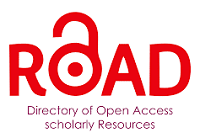Next issue
Next issue (volume 2, n°1) of Ussnan for publication in April 2025.
Practices and identity issues of transwriting/adaptation in Amazigh theater
It is common for one of the types of relationship between one literary genre and another, or, generally, between literature and any art, to be designated by the term “adaptation”, common in the world of theater and particularly in that of cinema. To overcome the exclusive relationship that this concept assumes with the question of fidelity/infidelity to the original text, or even its betrayal, theorists have suggested replacing it with that of “transwriting” (Gardiès, 1998) which better translates the dialogue of writing and suggests a process that produces meaning. To deal with this transwriting in the theatrical sphere, we propose to do so within the framework of the Ussnan review with a focus on the transition from universal theater, or any other literary or artistic source, to Amazigh theater.
We invite us to reflect on the spaces of dialogue of Amazigh theater, ancient but above all modern, adapted from universal theater, or any other hypotext, through its texts and its representations in the various variants of the Amazigh language. Studies can be oriented as much towards plays from the Algerian national theater and the various regional theaters of the country, or even from the theater of the countries of Tamazgha, as towards radio theater and amateur theater produces cultural associations or young troupes whose practices, visions, paths taken and their own imprints are interesting to know, apart from the influences of Mohya's theatre. Exploring the unknown or the little known could tell us about a new approach and practices.
It is precisely a question of seeing to what extent the passage from one writing to another, and from one culture to another, allows us to take charge of the Amazigh identity through the elements which include the human being, the space, the beliefs, the behaviors, the expressions, and all the Amazigh cultural matter. The relationship between the adapted text and the adapting text must be analyzed around the identity issues generated by the opposition of two culturally different areas. What does transcription (adaptation) do to Amazigh identity? How can this process of passage, transfer or transformation be a vector of Amazigh identity, beyond the language, by investing in the narrative content and the different tools of theatrical representation?
These questions constitute so many areas of reflection that it is possible to broaden to many others by asking, among other things, about:
- The evolution of the practice of transwriting/adaptation in Amazigh theater.
- The possibilities of transcription likely to enrich the repertoire of Amazigh theater without abandoning the specificity of identity.
- Transcription/adaptation in Amazigh amateur theater.
- The approach to theatrical models, more or less unexplored, with Amazigh specificity, adapted from universal theater or literary texts.
- Modern approaches applicable to Amazigh theatrical discourse resulting from adaptation (semiotics, etc.).
Indicative bibliography:
Ait Ahmed, M. (2013). Berber masks and Maghrebi theater. The Harmattan.
Fragonara, A. (2015). The practice of adaptation semio-linguistic and cognitive approaches [Doctoral thesis, University of Lorraine]. https://theses.hal.science/tel-02076644/
Gaudreault, A., & Groensteen, T. (1998). Transcription, for a theory of adaptation. Literature, cinema, comics, theater, music video. Nota bene.
Gaudreault, A., & Marion, P. (1998). Tranwriting and narrative media: the issue of intermediality. In A., Gaudreault and T. Groensteen (eds.). Transcription for a theory of adaptation. Nota bene.
Genette, G. (1992). Palimpsests: literature in the second degree. Éditions Seuil.
Hacid, F. (2017). Literary creation through the process of adaptation at Mohand Ou Yehya. The reasons for a choice. Imesli Islands. 9(01), 265-274.
Pavis, P. (2009). Dictionary of theater, (F. Michel Khettar, Trans.), El Fikr El Djadid Library.
Ricoeur, P. (2004). On translation. Bayard. 07-12-2024






